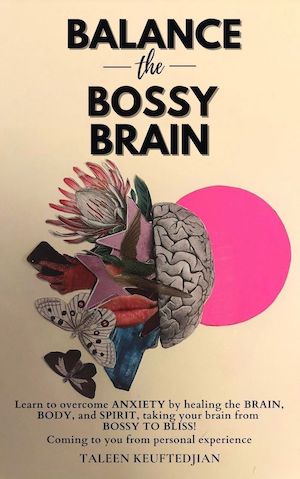Learning how to deal with stress can promote a better sense of well-being. Having a high-stress lifestyle can cause physical and emotional problems throughout the body and can impact your ability to think, focus, and enjoy the good things in life.
Does Modern Day Living Have You Feeling Burnt Out?
Modern-day living has become busier than ever with bustling cities, busy work schedules, emails, meetings, social engagements, social media, nonsensical news, and political drama. It is hard not to get lost in modern-day technology and feel compelled to overachieve in your career. All of this contributes to excessive stress and can leave you in a state of burnout.

All of us have experienced occasional stressors in our lives, and sometimes a small amount of stress can be a good thing for productivity. Moderate cortisol levels (stress hormones) can help keep us alert and motivated throughout the day. When acute stress turns into chronic stress, it becomes an issue. When someone is stressed often or daily, it does not give the body time to relax and eliminate stress hormones.
Stress Symptoms
- Chest pain
- Rapid heartbeat
- Aches and pains as a result of body tension
- Lowered immune system
- Nausea
- Dizziness
- Digestive issues
- Headache or Migraine
- Jitteriness or often on edge
- Teeth grinding
- Tensed muscles
- Irregular appetite – over or under eating
- Difficulty sleeping or insomnia
- Low sex drive
Stressors
- Hectic work schedule
- Not enough work life balance
- Money issues
- Divorce
- Job loss
- Weddings or other significant life events
- Buying a home
- Experiencing a traumatic event
- Losing a loved one
- Drinking too much coffee
- Binge drinking, drugs, and smoking. These substances cause oxidative stress to the body.


How to Deal with Stress
#1 Identify and avoid the stressors in your life
Scan your daily life to identify all the things causing you to feel stressed out. Then figure out ways you can alter your environment to avoid these stressors. For example, avoid negative people, senseless news stations, and negative TV shows that may be causing you stress. If you find that your commute is stressing you out, then leave a little earlier to give yourself plenty of time to get to work. If you have too much work on your plate, see if you can delegate some work to another coworker.
#2 Put life into perspective
Ask yourself what matters in life and what will matter in the future. Learn how to let things go and enjoy the simple things in life. Try to find the positive uniqueness in every circumstance you find yourself in. Changing your perspective on life will help you prioritize and simplify your life.
#3 Stop trying to control everything around you
Taking on more than you can handle can set you up for stress and failure. Some people are addicted to chaos and enjoy distracting themselves with multiple things at once, leaving them feeling burnt-out. Make a list of all the things you have going on in your life right now. Learn to delegate a task to others and take some time to destress and relax throughout the day.
#4 Do not excessively drink coffee
Moderate amounts of caffeine can help boost productivity, make you feel alert, and improve your mood. However, too much caffeine can have a reverse effect, especially if you are under a lot of stress. Consuming too much coffee can overstimulate your brain and central nervous system, resulting in a lack of focus, mental confusion, anxiety, nervousness, jitteriness, and hypersensitivity.
#5 Make a list to organize and prioritize your thoughts and goals
You can classify your items into categories, such as home, work, hobbies, social life, etc. Prioritize each item as “doable”, “delegate”, or “do in the future”. Tackle each task one at a time and avoid multitasking. As you accomplish each task, cross it off your list. Prioritizing your time can help you boost productivity and work more efficiently.
#6 Declutter your living space or workspace
Doing a purge of excess clutter in your home or workspace can help you declutter the thoughts in your brain. Keep things simple and minimal with lots of white and bright light in your space.
#7 Exercise or walk
Exercise or walking can help you destress your mind and body. Try to incorporate 30 – 60 minutes of exercise at least three days per week. Exercise stimulates the release of endorphins, which help promote a sense of well-being.
#8 Relax and clear your mind
Do yoga, breathing exercises, or meditate to encourage the relaxation response.
#9 Spend time in nature
Nature helps us experience the present moment and brings us back to our roots, thereby connecting us with our true selves. This is why you feel so relaxed when you are out in nature. Try to start each morning outdoors, especially if you have a patio or backyard. Being in nature can help you stay centered and relaxed throughout the day. You can take this time to stay present and enjoy its beauty or plan out the rest of the day.
#10 Spend time with family and friends
Sometimes, we get so deep in the hustle and bustle that we neglect to enjoy the simple things in life. It’s ok to take some time out to enjoy the company of others. Try not to talk about work too much during this time. Let the conversation be lighthearted, fun, relaxing, and stress-free. Prioritizing the simple things in life can help re-energize you by boosting your productivity for the long run.
#11 Prioritize time off or vacations
Have you ever wondered why you feel so good when on vacation? Yes, it is because you are relaxed, detached from work, and having fun. But most people don’t realize that vacationing helps you enjoy the present moment and those around you, which is the true source of genuine happiness.
#12 Listen to a podcast or read a book
Try to distract your mind from going in different directions by focusing all your attention on one thing. Make sure the topic is lighthearted and doesn’t cause you more stress.
#13 Use a wearable to track your stress levels
The Apple Watch Series 6 can track stress by measuring blood oxygen levels. It does this by sensing rapid or shallow breathing. When stressed or anxious our blood oxygen levels drop due to shallow breathing. The Apple Watch will enable you to actively manage your stress levels throughout the day, which can help you identify your triggers and promote relaxation.
#14 Detox the liver
The liver is responsible for breaking down and processing stress hormones, which means your liver needs to be in good shape to get the job done. If you’re experiencing chronic stress or anxiety, you most likely have an overabundance of stress hormones running through your body. This is because your liver can’t eliminate the hormones fast enough. Doing a liver detox can help speed up the elimination process.
#15 Stop stressing out!
Chronic stress shrinks the hippocampus, which is the portion of your brain responsible for managing stress. In other words, the more you stress, the harder it will be to control your stress levels in the future.
A relatable guide to overcoming anxiety by finding the root cause, and bringing the brain, body, and spirit back into balance. Coming to you from personal experience!
Learn more about Habitat for Wellness


